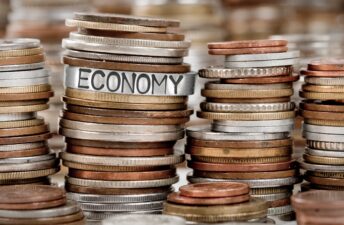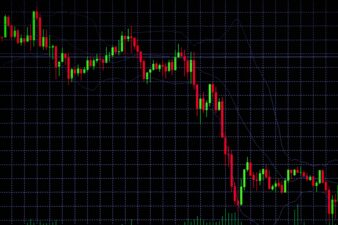
In the complex tapestry of the global economy, various generations have played their roles, shaping and being shaped by the prevailing conditions of their times. Among these, the Baby Boomers—a term referring to individuals born between 1946 and 1964—have been particularly influential. As they progress into retirement, discussions around their impact on today’s economic challenges have intensified. Here’s a closer look at the multifaceted reasons why Baby Boomers are often at the center of such debates, including key factors that contribute to the current economic landscape.
1. Housing Market Distortions

Baby Boomers are often blamed for the significant distortions in the housing market. Having entered the market during times of economic prosperity and relatively low property prices, many Boomers were able to acquire substantial real estate assets. As they hold onto these assets, younger generations find themselves facing inflated property prices, reduced housing availability, and a challenging path to homeownership. This generational disparity in housing accessibility has contributed to accusations of Boomers exacerbating housing market challenges, making it difficult for Millennials and Gen Z to secure their first homes.
2. Wealth Accumulation and Income Inequality

The Baby Boomer generation has been characterized by significant wealth accumulation, partly due to long-term investments, rising property values, and pension schemes more generous than those available today. This accumulation has led to heightened income and wealth inequality, with younger generations struggling to match the financial stability of their predecessors. Critics argue that the economic policies and practices favored by Boomers have entrenched these disparities, hindering social mobility and contributing to economic imbalances.
3. Environmental Degradation

Environmental issues have taken center stage in global economic discussions, with Baby Boomers often criticized for their role in environmental degradation. During their prime economic activity years, environmental awareness and sustainability were less prioritized, leading to practices that have had long-lasting impacts on the planet. This historical oversight is now a burden on younger generations, who face the daunting task of addressing climate change and its economic ramifications.
4. Social Security Strains

As Baby Boomers retire, the strain on social security systems has become increasingly apparent. With a larger portion of the population entering retirement, the balance between the working-age population and retirees has shifted, challenging the sustainability of pension systems. This demographic shift has sparked debates about the viability of social security and the need for reforms to accommodate the changing age structure of the population.
5. Healthcare System Overload

The aging Baby Boomer population has also led to increased pressure on healthcare systems. As healthcare needs grow with age, the demand for medical services among Boomers has risen, contributing to rising healthcare costs and resource allocation challenges. This surge in demand has implications for the accessibility and affordability of healthcare for all age groups, raising concerns about the system’s capacity to meet the needs of a diverse population.
6. Labor Market Changes

The Baby Boomer generation has been a dominant force in the labor market, shaping employment trends and workplace norms. As Boomers retire, significant shifts in the labor market are occurring, with emerging gaps in experience and skills. These changes necessitate adaptations in workforce development and employment practices to bridge generational differences and ensure a smooth transition of knowledge and expertise.
7. Educational Disparities

Education has long been a cornerstone of economic opportunity, but disparities in access and quality have become more pronounced. Critics argue that the policies and priorities of the Baby Boomer generation have contributed to these disparities, with underinvestment in education and rising costs limiting opportunities for younger generations. This has implications for workforce readiness and economic competitiveness, highlighting the need for strategic investments in education.
8. Political Polarization

The political landscape has been significantly shaped by the Baby Boomer generation, with their values and priorities influencing policy decisions. However, this influence has also been associated with increased political polarization, as divergent views within and between generations lead to heightened tensions. This polarization can hinder the development and implementation of policies aimed at addressing economic challenges, complicating efforts to achieve consensus and drive progress.
9. Globalization and Job Outsourcing

Globalization has been a defining feature of the global economy during the Baby Boomer’s prime working years. While it has brought about significant economic growth and opportunities, it has also led to job outsourcing and shifts in employment patterns. Critics argue that the pursuit of globalization by Boomer-led industries and governments has contributed to job losses and economic dislocations, affecting communities and exacerbating economic disparities.
10. Debt and Fiscal Policies

Fiscal policies and national debt levels have been areas of concern, with Baby Boomers often criticized for contributing to unsustainable debt through government spending and tax policies. The accumulation of national debt during their years of political and economic influence is seen as a burden for future generations, who will bear the responsibility of addressing fiscal imbalances and ensuring economic stability.
11. Consumerism and Economic Sustainability

The Baby Boomer generation has been associated with high levels of consumerism, driven by post-war prosperity and the rise of mass marketing. This consumer culture has had implications for economic sustainability, with questions raised about the long-term viability of consumption-driven growth and its environmental impact. As society grapples with the need for more sustainable economic models, the legacy of Boomer consumerism remains a point of contention.
12. Retirement Savings Crisis

The retirement savings landscape has undergone significant changes, with Baby Boomers often facing criticism for the state of retirement savings systems. The shift from defined benefit to defined contribution plans has placed greater responsibility on individuals to manage their retirement savings, leading to disparities in retirement readiness. Concerns about the adequacy of retirement savings and the potential for a retirement crisis reflect broader issues of economic security and inequality.
13. Technological Advancements and Disruptions

Technological advancements have transformed the economy, with Baby Boomers playing a key role in driving and adopting these changes. However, the rapid pace of technological change has also led to disruptions in traditional industries and employment patterns, raising questions about the preparedness of the workforce and the adequacy of support systems for those affected by technological displacement.
14. Global Economic Integration

The era of Baby Boomers has seen increased global economic integration, with the expansion of trade and the establishment of multinational corporations. While this has contributed to economic growth, it has also led to concerns about the concentration of economic power, the erosion of national sovereignty, and the impact on local industries and employment. The complexities of global integration pose challenges for economic policy and governance, with implications for economic equality and stability.
15. Demographic Shifts and Aging Population

The aging of the Baby Boomer generation is a significant demographic shift with wide-ranging economic implications. As Boomers age, the ratio of retirees to working-age individuals changes, affecting labor markets, pension systems, and healthcare needs. These demographic shifts require adaptive strategies to ensure economic resilience and intergenerational equity.
16. Educational Attainment and Workforce Skills

Baby Boomers have been influential in shaping educational systems and workforce development. However, the evolving demands of the modern economy require new skills and competencies, leading to a skills gap that challenges economic growth and competitiveness. Addressing these gaps requires a reevaluation of education and training systems to align with the needs of a dynamic and technology-driven economy.
17. Infrastructure and Urban Development

The infrastructure and urban development policies pursued during the Baby Boomer era have had lasting effects on economic development and livability. Investments in transportation, housing, and public services have shaped urban landscapes, but have also led to challenges such as urban sprawl, congestion, and environmental impacts. Reimagining urban development and infrastructure to meet contemporary needs is a critical task for fostering sustainable economic growth.
18. Financial Markets and Investment Practices

The Baby Boomer generation has had a significant impact on financial markets and investment practices, with their investment choices influencing market trends and stability. However, the financial crises and market volatility experienced during their tenure have raised questions about the sustainability of certain investment practices and the need for regulatory reforms to ensure financial stability and protect investors.
19. Income Distribution and Social Equity

Income distribution and social equity issues have been exacerbated during the Baby Boomer era, with growing disparities between the wealthy and the less affluent. These inequities challenge the principles of fairness and opportunity, necessitating policies that promote more equitable income distribution and address the root causes of economic disparity.
20. Intergenerational Wealth Transfer Issues

The impending transfer of wealth from Baby Boomers to younger generations presents significant economic challenges. This transfer, potentially the largest in history, is fraught with complexities like estate planning, tax implications, and the risk of exacerbating wealth inequality. Concerns also arise about younger generations becoming too reliant on inheritances, potentially affecting their financial independence and resilience. To navigate these challenges, reforms in estate and tax laws, along with enhanced financial education, are essential to ensure that this wealth transfer bolsters, rather than undermines, the economic stability of future generations.
Overcoming These Economic Challenges

Ultimately, while the Baby Boomer generation has contributed to shaping the modern economy, the challenges we face today are the result of a multitude of factors, including demographic shifts, technological advancements, and policy decisions. Addressing these challenges requires a collaborative effort across generations, with a focus on innovative solutions and equitable policies that ensure a prosperous future for all.
Catherine is a tech-savvy writer who has focused on the personal finance space for more than eight years. She has a Bachelor’s in Information Technology and enjoys showcasing how tech can simplify everyday personal finance tasks like budgeting, spending tracking, and planning for the future. Additionally, she’s explored the ins and outs of the world of side hustles and loves to share what she’s learned along the way. When she’s not working, you can find her relaxing at home in the Pacific Northwest with her two cats or enjoying a cup of coffee at her neighborhood cafe.

